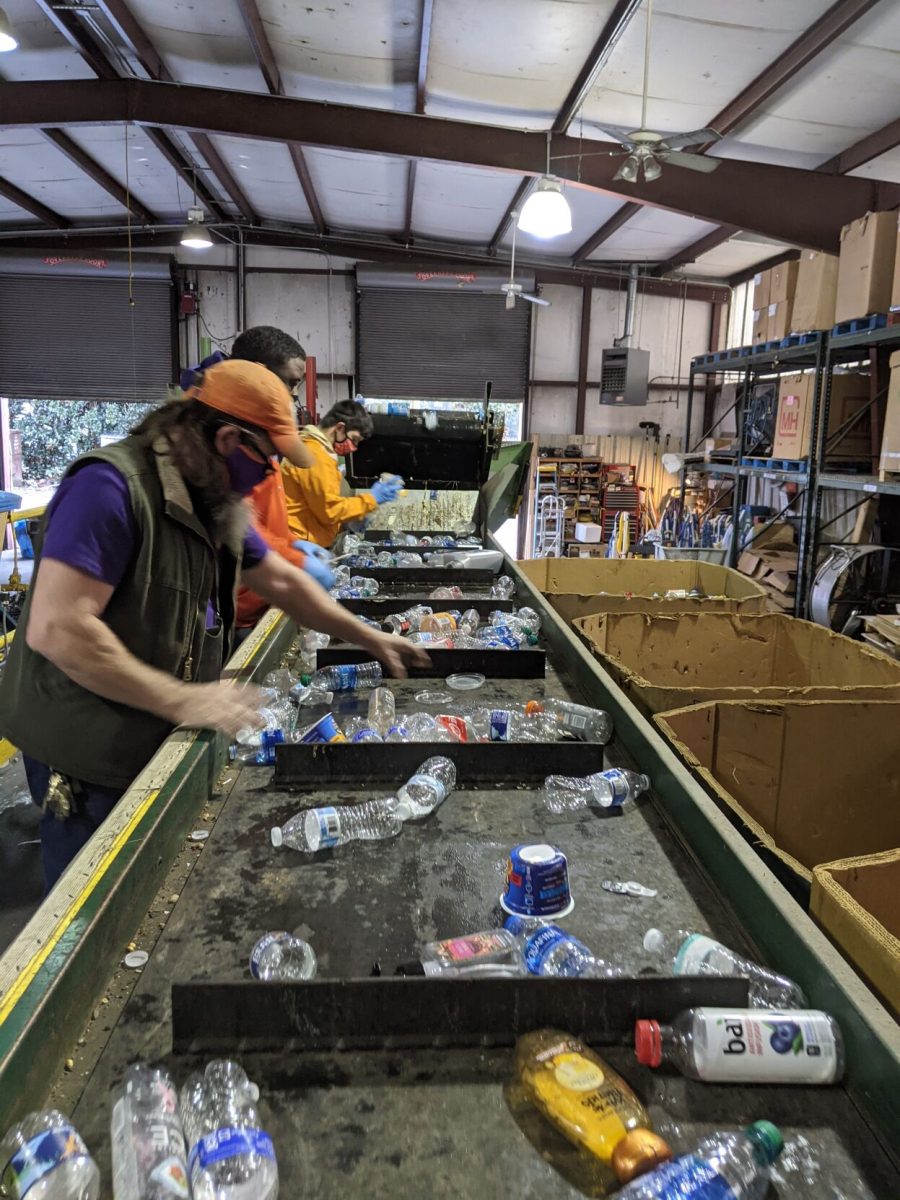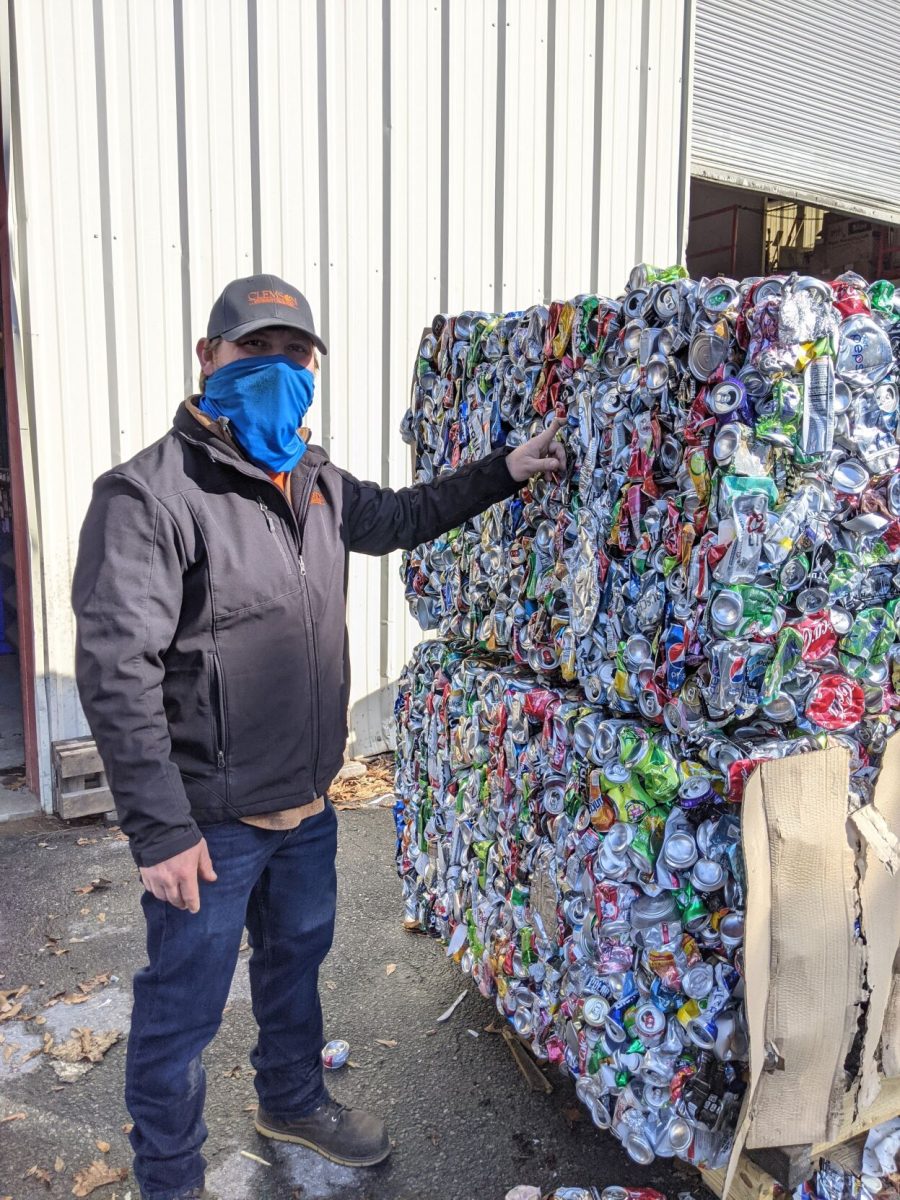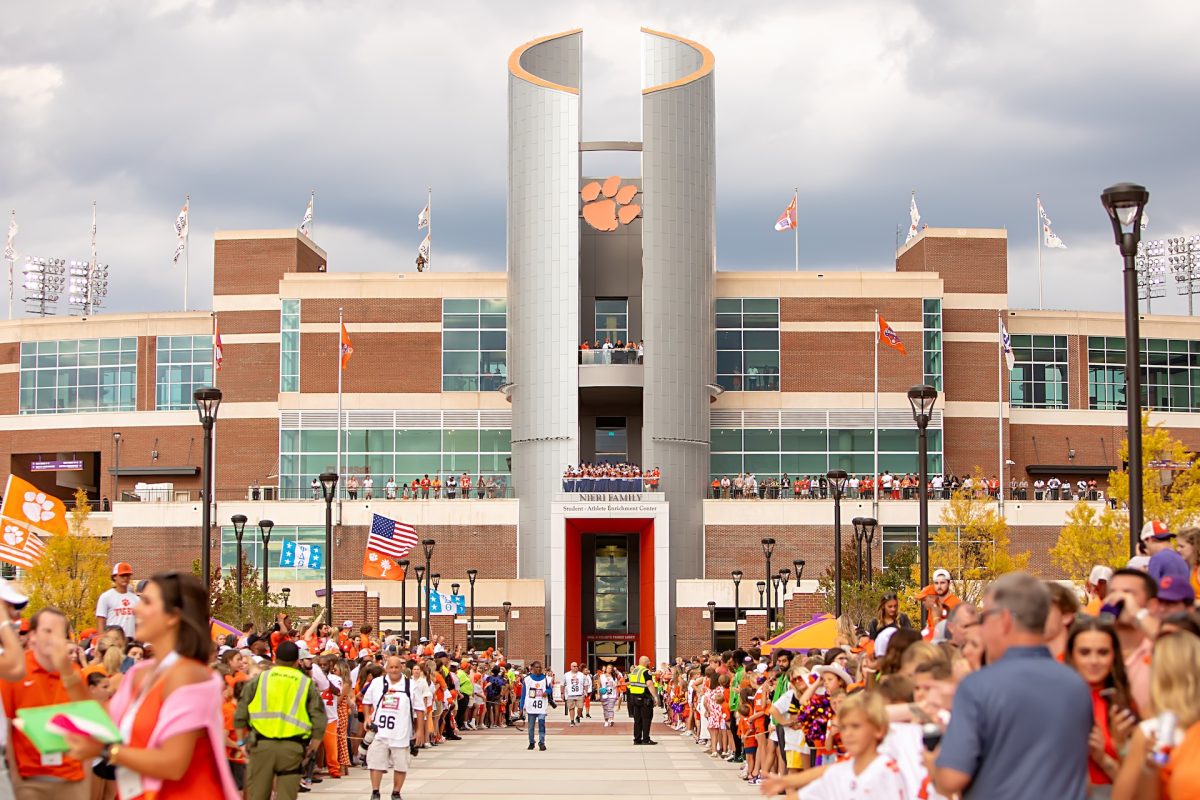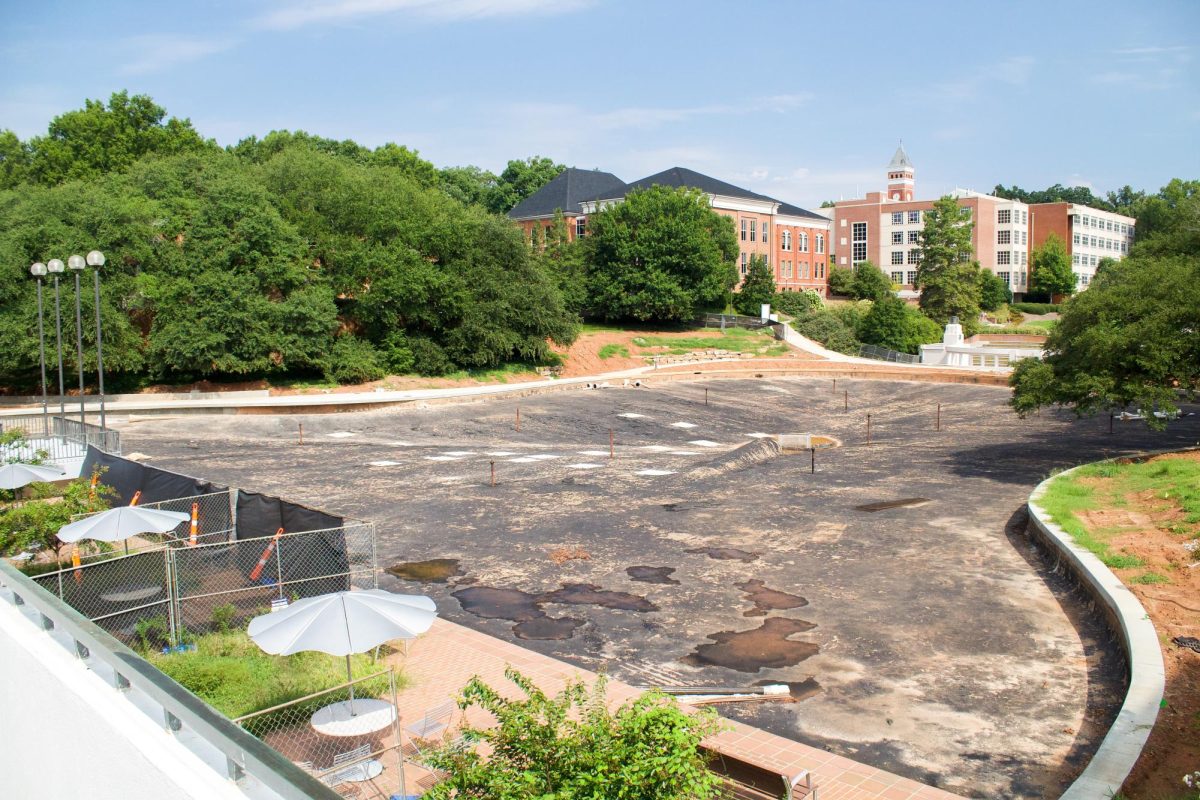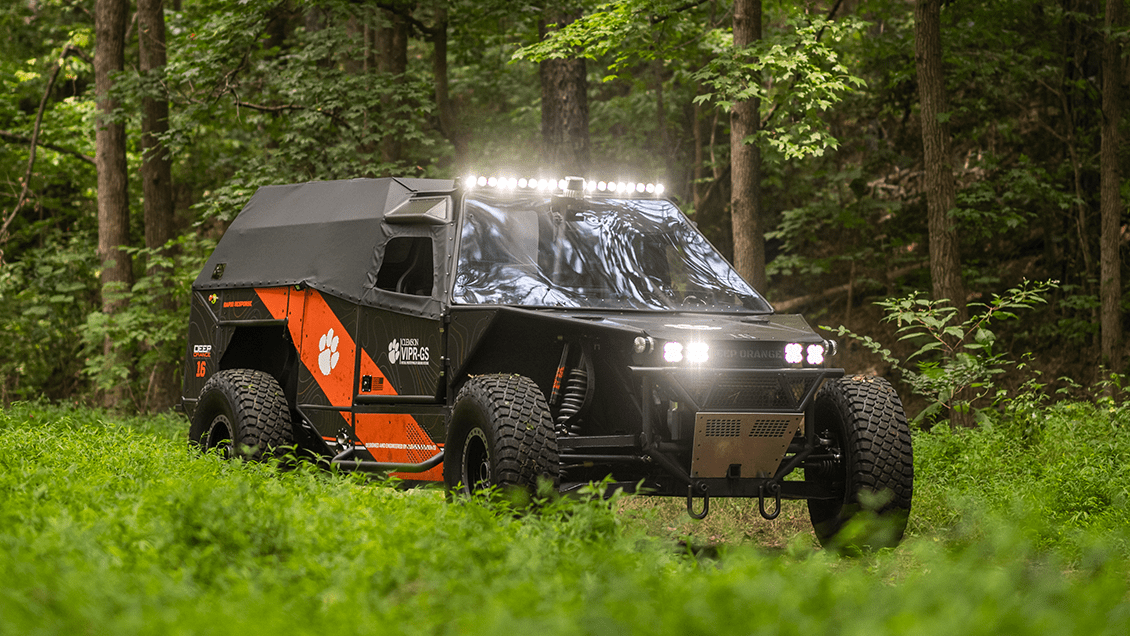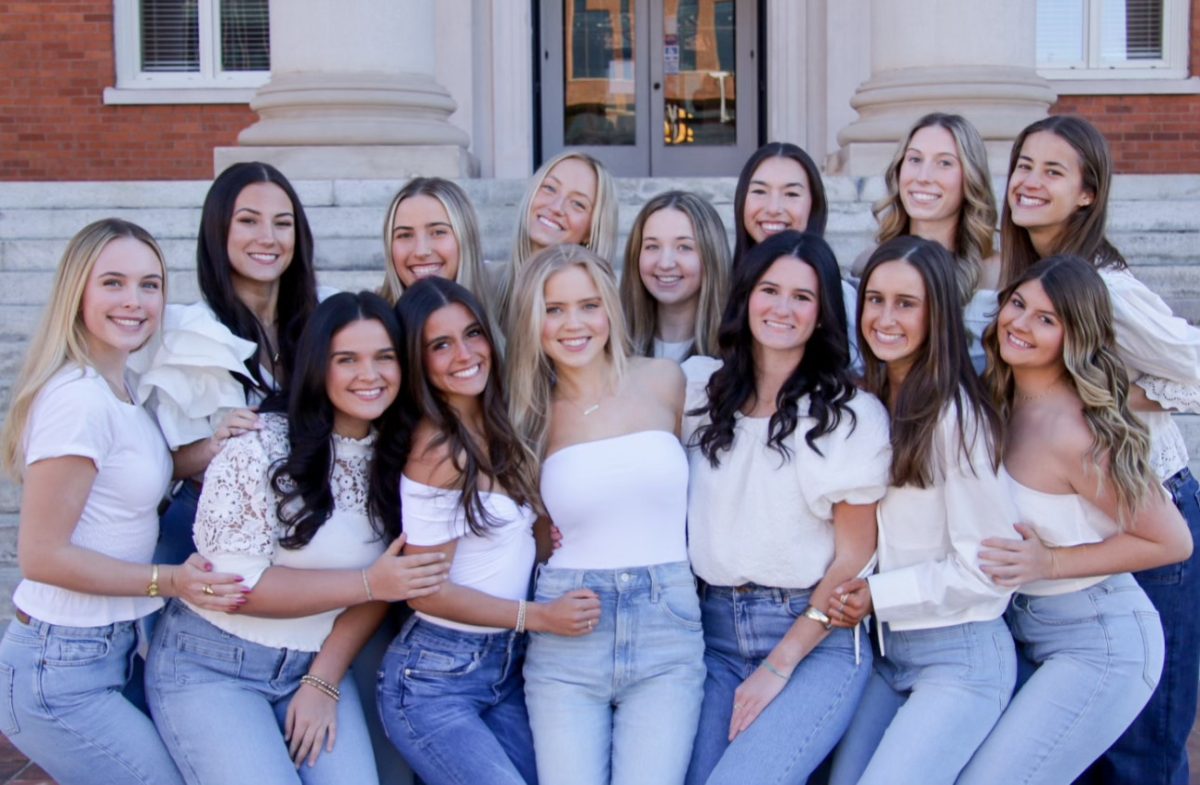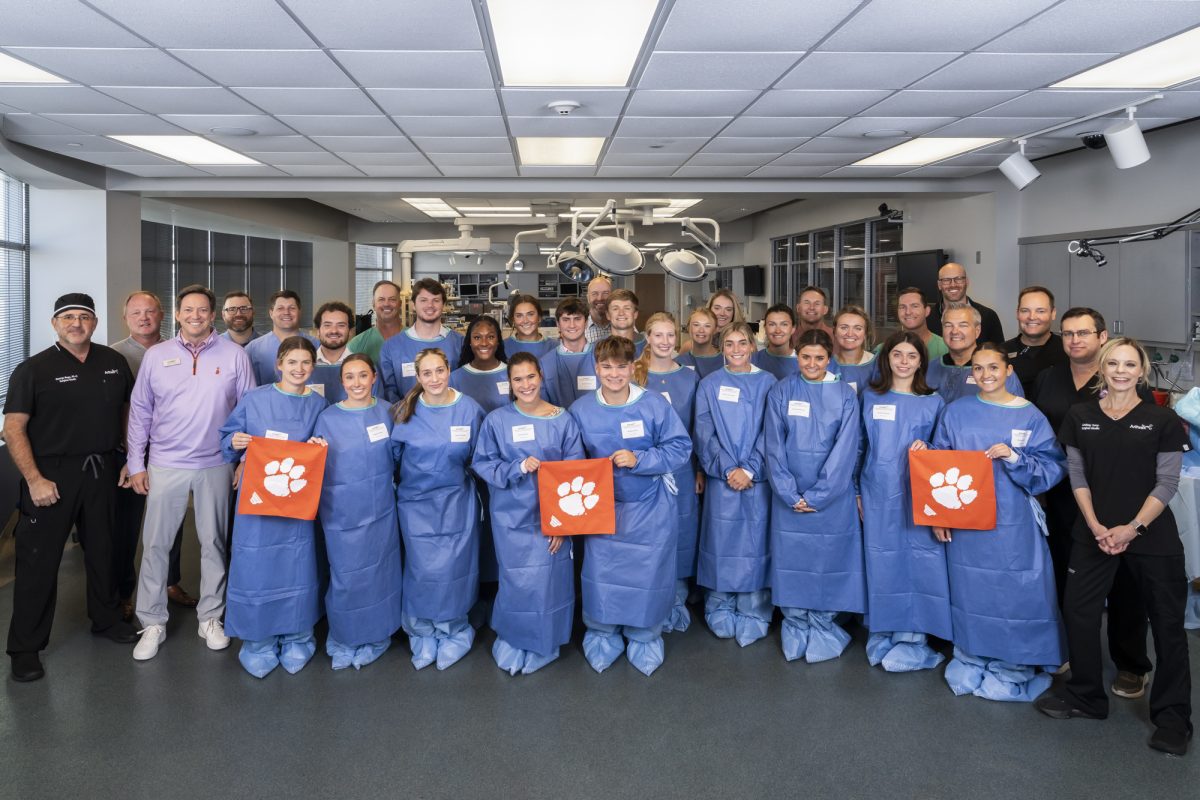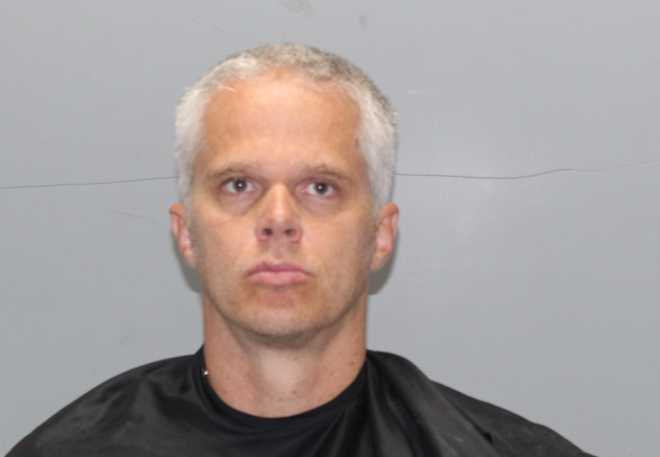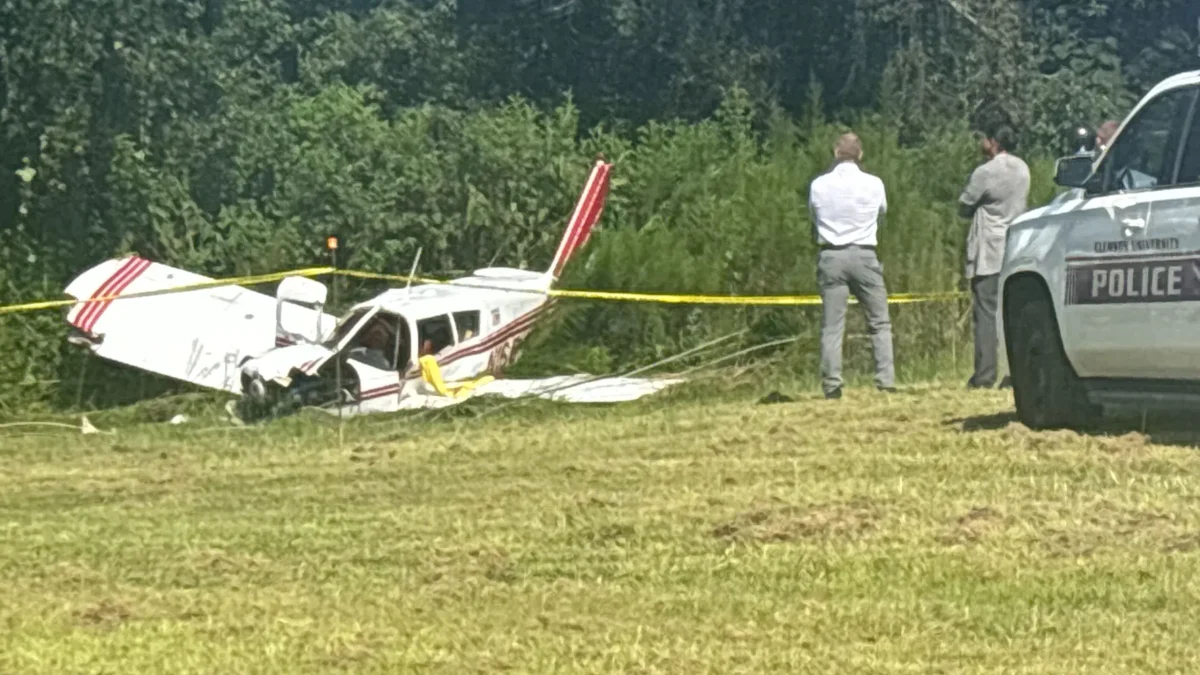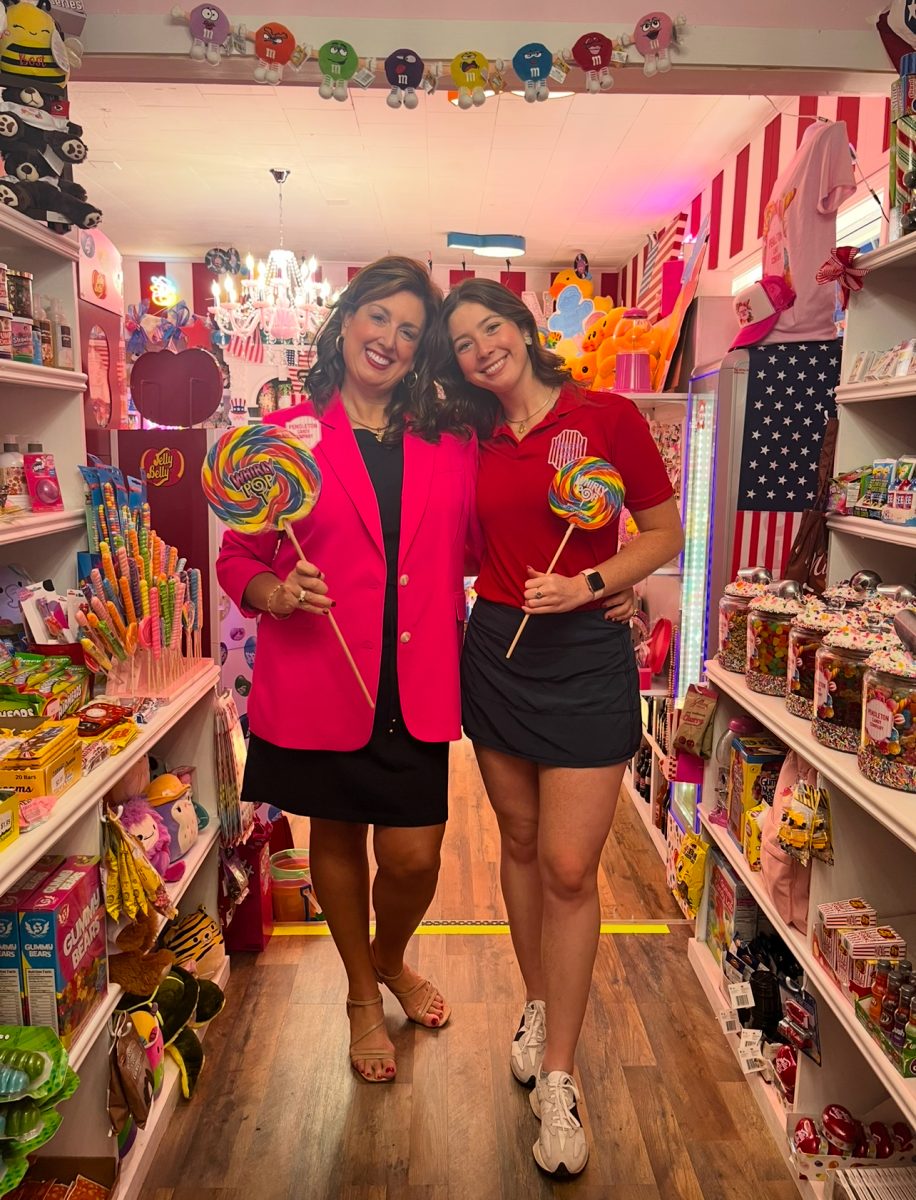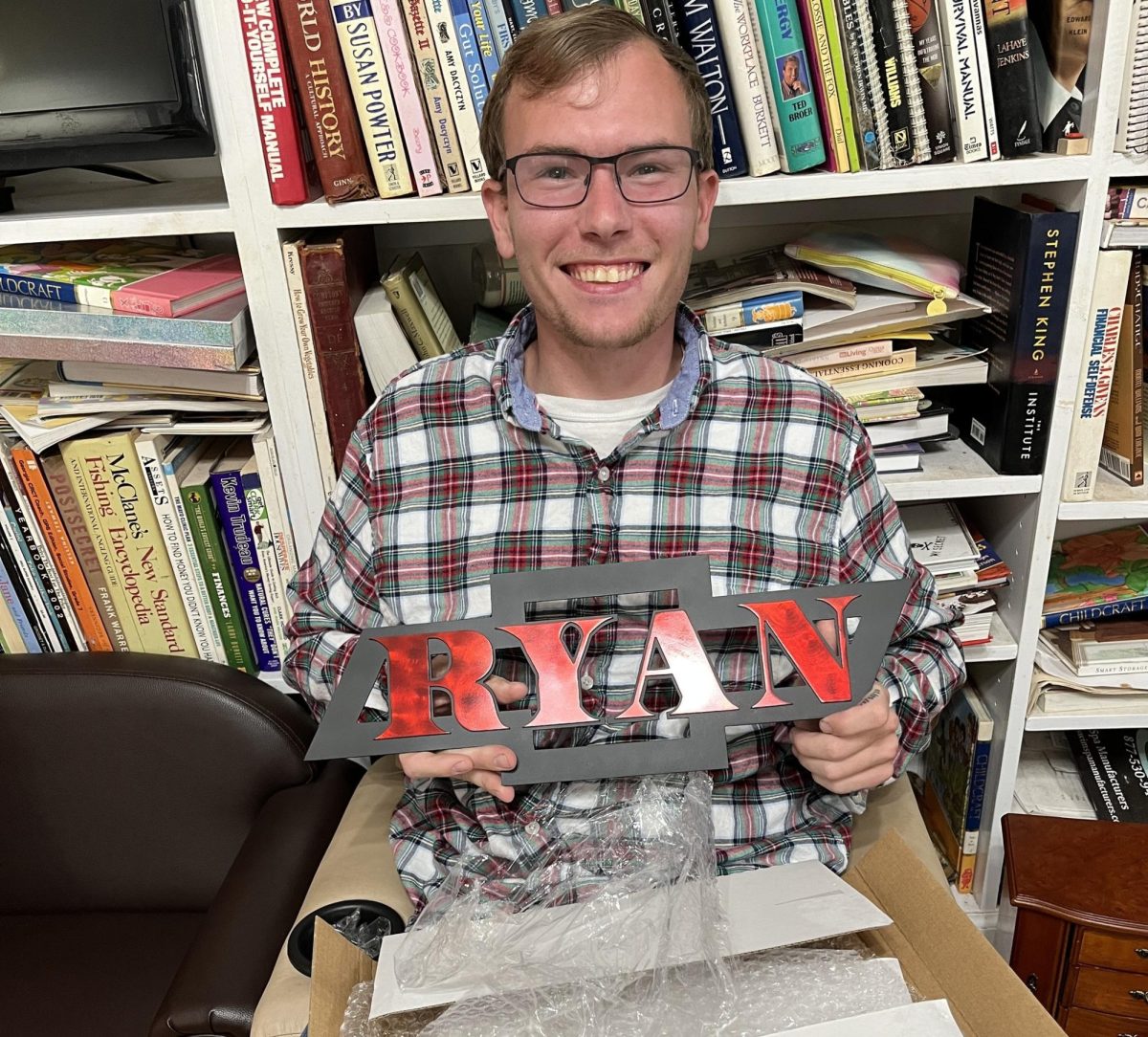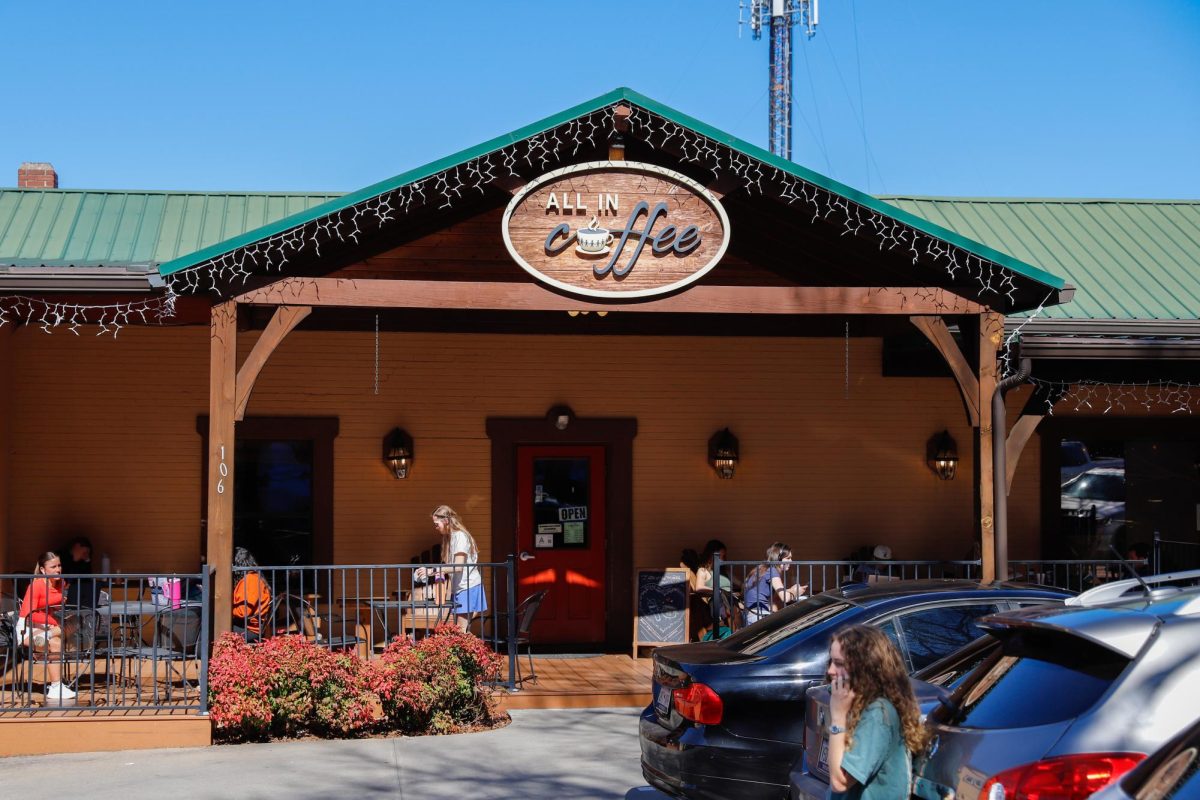The building is abuzz with noise: a muffled voice on the radio, the metallic roar of aluminum cans tumbling out of a big blue bag, the pop of plastic bottles being crushed and the occasional crash as glass falls to the ground. The noise echoes through the building, evidence of the hard work that goes on every day at Kite Hill Recycling Center on Clemson University’s campus.
At 6 a.m. each weekday morning, the Kite Hill team drives their collection trucks around campus to collect recyclables and hauls them back to the recycling facility. They work quickly and efficiently, completing their routes before most students even step foot on campus.
The team opens every single recycling bag they collect. On game days in the fall, they also open and sort through all the trash bags from the football stadium and the tailgating areas.
If the campus is their kingdom, then Kite Hill is their palace. A palace of sorting lines, balers and enormous collection trucks, that is. The throne — the centerpiece of the whole palace — is the vertical semi-automatic baler. Plastered with hundreds — maybe thousands — of stickers found in the recycling bins, it stands in the center of the building and dwarves the other pieces of equipment around it. There are stickers advertising local bars and restaurants, past years’ football schedules, the logos of various departments within the University and every variation of the Clemson tiger paw you could possibly imagine.
The recycling team brings in the latest batch of plastic on a forklift and dumps it into the baler, plastic bottles and jugs tumbling out like pills pouring out of a medicine bottle. The plastic is carried up the conveyor belt and falls into a chamber below, where it gets compressed into large bales.
Before the baler receives its bounty, the plastic must be sorted meticulously by hand. Two Kite Hill employees, Tevin and Rusty, lean over a sorting line and begin to separate the recyclable plastic from the non-recyclable plastic. It seems straightforward, but this job is trickier than you might expect. For example, #1 plastic bottles are acceptable, but #1 plastic lids are not. Plus, you need a keen eye to recognize which bottles are plastic and which are glass.
Controlling contamination
The Kite Hill team works hard to undo the contamination caused by people improperly disposing of their waste. “If everything was clean and free of contamination, it probably wouldn’t take us that long to sort and run our material,” explains Chase Beebe, who has worked at Kite Hill for about eight years.
Jacob Kiser, the Recycling Operations Supervisor, agrees. “I wish students knew that we touch everything that is put in there — every item that is put in a recycling bin, hands are put on it. If it’s just one or two more seconds to decide where things go, it makes it so much easier on us. It makes the system work so much better, and it creates better revenue for the University.”
Beebe says the most difficult part of his job is dealing with contamination. “You see the recycling bins and you put your stuff in there, but you never see beyond that point as a student,” he says. “If the [students] could see how contaminated the stuff is, it might help them choose to do the right thing and put their waste in the right area.”
According to Clemson University Facilities, Clemson’s recycling rate is above 50%. Despite high levels of contamination, more than half of all waste generated on campus is diverted from the landfill.
Sorting and salvaging
Momentarily stepping away from the sorting line, Tevin lifts the palm of his hand to reveal a large gash in his blue latex glove. This happens pretty often, he says, as the material can tear the gloves easily and because they’re a bit too small for his hands. Rusty smiles and laughs, his long gray beard poking out from under his orange and purple mask. He doesn’t like to wear gloves anyway.
The platform vibrates ever so slightly beneath their feet, humming from the mechanical buzz of the sorting machine. Every so often, Ricky steps over and peers down into the big blue dumpster below, checking to see when the plastic has filled it to the brim.
Elsewhere in the room, someone is sorting the glass. A glass bottle falls inadvertently to the floor with a loud crash. Ricky and Tevin pay it no mind, not even blinking an eye. They are used to the sounds of their territory.
Across from the platform, the office has been furnished with things other people threw away. A faux-wood table sits at the far end of the room alongside a faux-leather chair that is cracking and peeling to reveal the spongy yellow foam in the layer beneath. Atop the table sits a Keurig coffee machine, which Kiser says is completely functional.
Jacob Kiser hasn’t always worked in the recycling business. Before transitioning into his current role less than a year ago, he worked in retail. He says he much prefers his current job.
“I absolutely love coming [to work] and I feel like we are making a difference,” he says. “It’s a very thank-less job — you’re kind of behind-the-scenes — you do stuff before people get here [in the morning], but I love it. Every day is a different day.”
Kiser manages the facility’s day-to-day operations as well as the team of employees. The recycling team includes full-time employees, part-time employees, student workers and students from Clemson LIFE, a program that offers a collegiate experience for people with intellectual disabilities. He is like a father-figure, ensuring the work goes smoothly but also looking after his employees as if they were his own family.
Kite Hill employees have found some very strange things in the recycling bins over the years. In the office, Kiser pulls out a recent find: a brand-new package containing a bright orange inflatable waving arms man. He laughs and grins and wonders why someone would throw a brand-new item like this into the recycling bin.
He says he has also found Oakley sunglasses, unused gift cards and new soccer cleats. Some finds aren’t so exciting, however. They have found diapers, personal hygiene products, IV bags and a cardboard box full of raw meat, which after sitting in the summer sun for several days, became so putrid that the smell forced them out of the building.
On the far side of the vertical semi-automatic baler, Kiser gestures toward a window where you can peer through the glass and see the machine crushing hundreds of plastic bottles. One of the Clemson LIFE students turns to Kiser with a smile and asks “Are you trying to steal my job?” He responds with a laugh. “I don’t think I can do it as well as you!”
Near the machine, a TIME magazine lies haphazardly on the ground. “The Most Interesting Man in Politics,” reads the title on the cover. He may be interesting, but here, he is just a face printed on a piece of paper, ready to be recycled and given a new life as a different product.
The material processed at Kite Hill is sold to American Recycling in Asheville NC, which then sells the material to manufacturers who can use it to make new products. These products include paper products like paper towels, toilet paper, recycled office paper and cardboard, as well as plastic fibers used in garments, tennis shoes, backpacks and park benches. “Who knows, we could even be wearing some of our plastic bottles,” says Kiser.
Reckoning with recycling
Cassie Outlaw and Kyla Colin are two student employees who work at Kite Hill. They say the best part of the job is driving the big trucks around campus — it makes them feel important.
Kyla, a sophomore philosophy major, says the job has instilled in her a new appreciation for the recycling process. “Before working here, I didn’t really pay much attention to recycling … but now, I know certain things don’t belong in certain places … I didn’t think about how people have to sort through that.”
Cassie agrees, saying she has learned much more about the recycling process than she ever knew before. As a senior conservation biology major, she has gained a new appreciation for what happens to our waste. “Trash doesn’t decompose like leaves do. If every leaf that ever fell didn’t decompose, imagine what that would be like,” she says.
The other workers echo the same sentiment: students should be more intentional about how they dispose of their waste. “Pay attention to what the bins say. It does matter,” says Cassie.
Kiser points to a bright pink splotch on the concrete outside and explains that someone threw an ink cartridge into the cardboard dumpster. When they were moving the cardboard, the cartridge exploded, leaving the mark of negligence splattered on the concrete and painting their Bobcat forklift pink.
Kiser also says they receive a lot of food waste at Kite Hill, which not only contaminates the recyclable material, but could have easily been composted at Clemson’s Cherry Crossing facility had it been placed in the correct bin. He says the team wants students to know that someone is sorting through every item they throw into the recycling bins.
“If it’s recycling on campus, somebody’s hands are going through it,” says Kiser. “When you drop a Starbucks cup that is half full of Frappuccino and milk into the recycling bin, now everything else in there is covered in that. Three or four days or a week later when we pick up the [recycling] from that building and it’s 90 degrees outside, that material has been sitting there and starts to smell really bad … and we have to go through it and clean all that up.”
He explains that it is important to pour out liquids and rinse food waste off the material before placing it in the recycling bins because contaminants can harm the equipment.
The Kite Hill Clemson Family
Despite the difficulties of the job, the spirit of the Clemson Family is so palpable you can almost taste it. The team works strikingly well together, each person aware of their role and focused on the task at hand. Of course, they find plenty of time to poke fun at one another in between tasks. As they gather for a group photo, the jokes go flying.
“We’re about to take a picture, do you need to fix your hair?” Kiser teasingly asks one of the Clemson LIFE students. As soon as he asks the question, he takes off his baseball cap to reveal a head of hair with strands sticking out in every direction.
“No! If anyone needs to fix their hair, it’s you,” responds the student, and everyone laughs.
They gather around a freshly formed bale of aluminum cans, which sparkles and glimmers in the sunlight like a crown jewel — a crown jewel that will make the University about $90.
Even so, “recycling is not about making money,” says Kiser. “Recycling is to divert the cost of landfilling stuff. It’s cheaper to actually recycle and it saves the environment. It’s more sustainable.”
Though the hard work done at Kite Hill is largely invisible to the student body and the rest of the community, the recycling team is an integral part of maintaining Clemson’s campus and pushing the University toward its sustainability goals.
The Kite Hill team encourages people to reuse their items if they can, carefully read the signage on recycling bins and do their best to sort correctly. Kiser says everyone should feel free to ask questions about recycling. “If you don’t know [how to sort correctly] and you’re here [at Kite Hill] between 7am and 2pm, we’re here. Come and ask one of us. We’re not going to judge you.”
Read the Recycling Guidelines to learn more about how to properly recycle at Clemson University.
Jacob Kiser, Recycling Operations Supervisor, points to a bale of aluminum cans outside Kite Hill Recycling Center.


